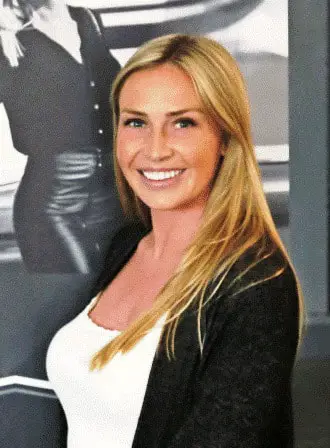Day in the life of
Technical Writer – Ludovic Chung-Sao

I’ve been working as a Certification Engineer in Aviation for 7 years. I write technical pieces for people not always sharing the same technical background as me.
I write documents for the European Aviation Safety Agency (EASA) which has highly qualified engineers. So using technical terms was not an issue. But when I have to write maintenance manuals, it isn’t always very straightforward. The aimed reader can be either end-users or the maintenance department. Technical terms are always illustrated so that there are no misinterpretations (like the manuals when you buy a new washing machine).
As a technical writer, I have to understand the product or content technically well. It is also essential to understand who’s your audience and what is the exact purpose of the piece.
Writing Specifications: Amongst my daily tasks, I am in charge of writing specifications to manufacturers. Put simply, a specification is a list of requirements that describe the part/product we want the manufacturer to build. The specification can call out descriptions, schemes, standards, etc. It’s pretty broad and it requires technical exchanges between me and my colleagues who decided what design to go for.
Certification Documents: Most of my time I have to write certification documents which purpose is to demonstrate that the parts I talk about satisfy the level of safety required by the Aviation Authorities. Those documents are highly technical but written with simple wording. To write these documents, I have to collect information from different sectors such as the design team (again), specialists (materials, manufacturing, electrical, installation, etc.).
Test Procedure/Report: In case we have to perform testing on products/parts, I have to write the technical procedure for laboratories. They are then in charge of answering my list of requirements. After the end of the tests, I am also in charge of writing the technical report. Those kinds of tests are generally very costly and very important for the development of the product/part. So the technical documentation has to follow in terms of quality.
Capitalization: After the end of each project, we have to capitalize on the lessons learned, the calculations, the philosophy of design, the reasons for certain choices. This is not the most interesting part of technical writing as it’s not about “telling something new” but simply recording an “old story”.
Maintenance Manuals: Last but not least, sometimes colleagues from the maintenance department will ask for assistance. Reasons can be either they have doubts about some functionality of the product, its operating conditions, etc. Therefore I am sometimes asked to proofread their maintenance manuals, provide some suggestions or even schemes.
Pros
- Improve writing communication skills (and spoken): From my personal experience, being able to transcribe technical topics forged my ability to write more accurately. A side effect is that it really improved my oral communication as the ideas were more clearly displayed in my mind.
- Immersion in the development of a product: Being in contact with the designers and all the actors gravitating around the product development is highly rewarding. Technical documentation writing is essential for the completion of any engineering project.
- Aesthetic is more than optional: Technical writing doesn’t require nice wording. It needs to transmit the information clearly and accurately. Technical writing is not literature.
- Managing other writers: With experience, I got the chance to outsource technical documentation writing. We lose inaccuracy because the content is outsourced. A solution is to set regular meetings to track the writing progress.
Cons
- No room for misinterpretation: Every line written has to be clear for you and for your reader. There should not be room for misinterpretation. In order to write accurately, you’ll have to keep yourself up to date with the information or the product you’re writing about. Sometimes following up with new technologies, technical drawings, sizing calculations are necessary. Interactions with development teams or specialists can also be part of the role (it can be perceived as a pro).
- The audience is king: Whether it is an end-user, an airline, a laboratory, or the Aviation Authority, it’s primordial to keep in mind if the wording can be understood by the audience or not.
- Show patience to rewrite after feedback: It can be tough but some senior managers can disagree with your content. Just showcase patience, swallow your ego and feed yourself from their experience. I’ve never been disappointed following their directions. On the contrary, I think I became a better writer thanks to all their feedback.
- Some documents will never be read (or almost): Let’s be honest, some documents are meant for capitalization or simple records. It means that a very low proportion of people will use it in the future.
Technical Writers
write technical materials, such as equipment manuals, appendices, or operating and maintenance instructions. May assist in layout work.





.jpg)